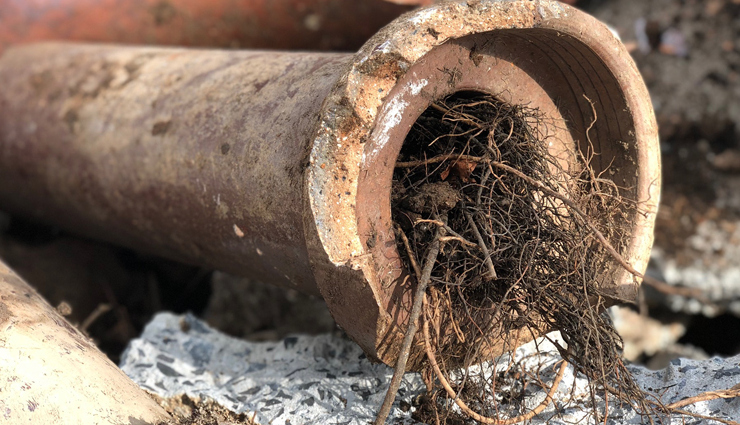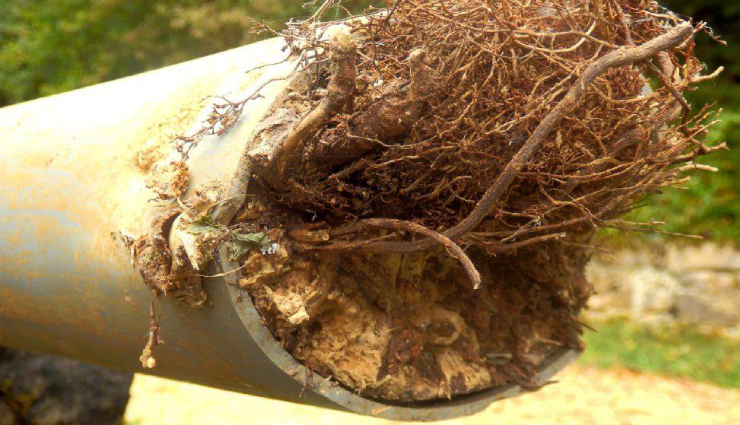

Tree roots have a remarkable ability to seek out moisture, and your underground drainage pipes provide the perfect source. As trees grow, their roots naturally extend in search of water, and if there are drains in their path, they can infiltrate and penetrate the pipes. Once inside, the roots can rapidly grow and expand, causing blockages and obstruction of the water flow.
Signs of Root Intrusion
Slow Draining: If you notice that your sinks, showers, or toilets are draining more slowly than usual, it could be a sign of root intrusion. Reduced water flow is often an early indicator of a blockage caused by growing tree roots.
Unusual Gurgling Sounds: When you flush the toilet or drain water from a sink or bathtub, listen for unusual gurgling or bubbling noises. These noises may occur as water tries to navigate around root masses within the pipes.
Recurring Blockages: If you frequently experience blockages that seem to clear temporarily but return shortly after, it may indicate root intrusion. The roots can trap debris and cause recurrent clogs.
Sewage Backup: Perhaps the most severe consequence of root intrusion is sewage backup. When roots completely obstruct the drain pipes, wastewater has nowhere to go but back into your home. This can lead to foul odours, health hazards, and extensive property damage.
Choose the Right Location for Planting: When planting trees on your property, be mindful of their proximity to drainage pipes. Select tree species with non-invasive root systems if possible, and avoid planting them too close to drains.
Regular Maintenance: Plan routine examinations and upkeep for your drainage system. A professional plumber can use specialised equipment to identify early signs of root intrusion and take preventive measures.
Chemical Treatments: There are chemical products available that can inhibit root growth in drainage pipes. These treatments can be effective in preventing root intrusion but should be used with caution to avoid harming the tree.
Physical Barriers: Installing physical barriers like root barriers or screens around your drainage pipes can deter roots from entering. These barriers can be placed during installation or retrofitted into existing systems.
Regular Pruning: If you have trees near your drainage system, consider regular pruning of their roots. Consult with an arborist to ensure that pruning is done safely and does not harm the tree's health.
Professional Inspection: Contact a professional plumber with experience in dealing with root intrusion. They can use specialised cameras to inspect the pipes and evaluate the scope of the damage.
Root Removal: Once the plumber identifies the root intrusion, they can use various methods to remove the roots from the pipes. These methods may include hydro-jetting, mechanical cutting, or chemical treatments.
Repair and Prevention: After removing the roots, it's essential to repair any damage to the drainage system. Additionally, consider implementing preventive measures to avoid future root intrusion.
Conclusion
Tree roots can be a common and troublesome culprit of blockeddrain. Their natural inclination to seek out moisture can lead them to infiltrate your drainage pipes, causing blockages and damage. If you suspect root intrusion, seek professional help promptly to address the problem and prevent further damage. By understanding the role of tree roots in drains and taking proactive steps, you can protect your home's plumbing and avoid costly repairs.